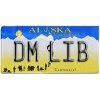I loved the fair(y) use tale. Very creative. Wonder if the creator got permission! I've also explored creative commons before and need to spend more time there so I can steer teachers and students that direction.
Final Comments:
I feel like I've been on an internet marathon and instead of having tired legs, my brain is a little strained. I'm looking forward to sharing and exploring the use of these tools with students and teachers. Thanks Ann and Katie for making this class available to us.
What Worked
I liked the blog format. It was a good way to make comments as I explored. Often I had several tabs open at once and navigated between them looking at a tool, writing my blog, reading other participants' blogs all at once. I think the choices of "Things" was a nice mix and though I'd heard of or even played with some of them, it was good to take more time with those and fun to learn about those that were new to me.
I really liked reading other participants' post and seeing where their explorations led them. I often discovered something cool this way that I hadn't found on my own. I'm also looking forward to spending more time reading some of the curriculum suggestions on the wiki. I think this class has great possibilities for building connections.
Suggestions
Maybe we can create a place on the wiki and encourage participants to write about how we are using these tools in our schools. I want to know how others are applying web 2.0 in their libraries and classrooms so I can steal ('er borrow) ideas. It would be nice to continue the collaborative, creative communication.
If I Can be AASL President, So Can You!
1 year ago





